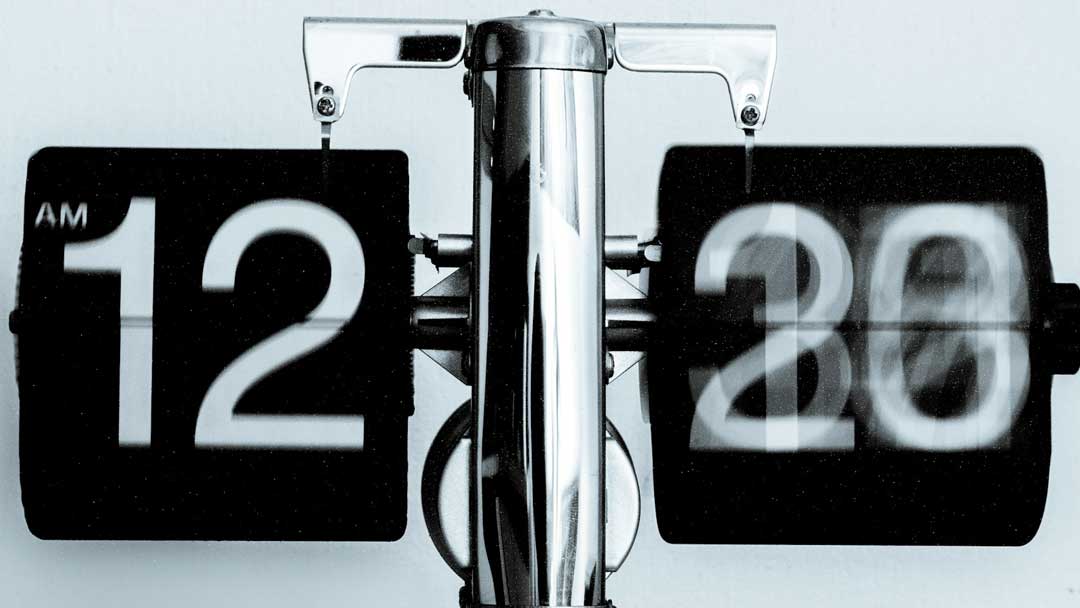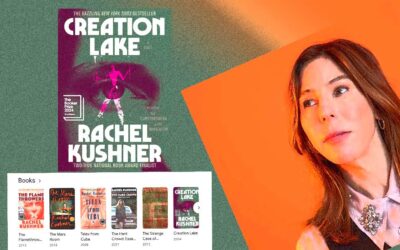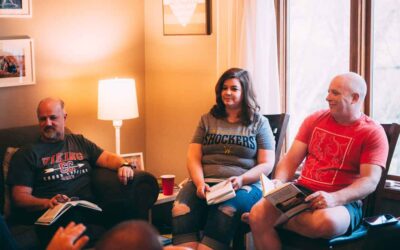Have you ever wondered how to hear a book’s soul before you buy it?
A book’s soul?
Huh?
You love to read novels, right?
You enjoy the occasional, pragmatic pages of some non-fiction, online blog posts and magazines, or newspapers, right?
But we both know that there’s a serious, unacknowledged, dark side to reading a lot of books.
“The practice of horse whispering was founded by the appropriately-named Irish horse trainer, Daniel “Horse Whisperer” Sullivan, who was born in the 18th century in Mallow, County Cork. Sullivan came up with the idea after working with horses who had been the subject of trauma and extreme abuse.” – Horse Whispering Blog
1. YOUR LARGE COLLECTION OF UNREAD BOOKS
I suspect you have a large collection of books you thought you might like— based on the cover photo, the first few sentences, the review on the back of the book cover, or the prominent recommend by a famous person.
But if you stand back and scan your bookshelves, what actually happened was, all those purchases somehow magically transformed into nothing more than a beautiful stack of paper.
The E-Book equivalent? Your E-reader’s home page is overcrowded by things you just have to skip over, time and time again.
On top of that– even though there are plenty of joke-posts on social media about readers who are proud of their mountain-piles of unread books– when you think about the money you could’ve spent on something else that you really need– you feel a little twinge of guilt.
Photo by Ed Robertson on Unsplash
I don’t know about you, but I’m always struggling to find the next book that I’m truly going to love.
If you’ll be satisfied with just any old book, you won’t have any trouble finding one. If that describes you, you’ll be happy to know that, at the current time, Amazon offers about three million books for free on Kindle.
1a. How Did We Get Here?
Wow. three million books.
Still, I wonder how many of those free books you’d actually enjoy?
Sure, some might be good.
But how, exactly, do you find a book that you’ll love?
A book that’ll make you want to spend more time with the characters after you read that last page.
A book that will make you wonder what might have happened after the current plot is over.
Personally I think this is a common and recurring dilemma for serious readers.
1b. What Won’t Work
While the solutions below aren’t evil, in and of themselves, your larger plan should not exclusively be:
- A book review
- An online recommend from someone you don’t know
- The fact that a publisher’s money might have put a book on someone’s best-seller list. Think it doesn’t happen? Check this out!
- Word of mouth? Maybe. Many people think so. But it kind of depends on the mouth.
We need a better selection tool.
A more personal way to customize your decision.
Photo by Nathan Dumlao on Unsplash
2. HOW DO YOU ACTUALLY YOU HEAR A BOOK’S SOUL?
To get started, you’ll have to be willing to go beyond the blurb.
And let’s face it.
You’re never going to actually speak to the famous person who wrote that book recommendation, so you’ll never be able to verify if that recommendation was bribed or coerced. The world’s full of people who will do that for the right amount of money or fame.
Also, you’re not going to re-read the review that’s on the book’s back cover more than once.
And that book’s first few sentences?
Believe me, they been sanded down to perfection.
Any writer worth reading is going to start off with a bang, or with something intriguing or interesting.
An imaginative child could make up a couple of sentences that would do that.
Photo by Hannah Rodrigo on Unsplash
2a. You’ll Have To Go Deeper to Hear a Book’s Soul
Store-away that potential read’s first few sentences.
They’re like a nice door on an expensive house. The value of the door is incredibly smaller than the price of the house, percentage-wise.
An entire novel averages out to around 100,000 words. On top of that, all those words and sentences have to be coordinated enough to make sense. And, so do all the paragraphs and all the chapters and all the dialog.
Those first few sentences of a book (especially a novel) always contain a very polished invitation. A nice door.
Those sentences are on a blind date with you, whether you know it or not.
They’re trying to make a good first impression.
Trying to put that book’s best foot forward.
The first few sentences of a book just plain have to taste good!
In the same way that you’re not going to continue to eat food that doesn’t taste good. No matter how many professional chefs recommend it, or what famous person claims it tastes good, or how pretty it looks on the plate.
Photo by Jay Wennington on Unsplash
2b. Only You Know You
Truth is, you’ve got to decide for yourself.
And your decisions are solidly backed by years of not finding exactly what you want.
Shoes.
Clothes.
Haircuts.
Cars.
Relationship partners.
Turns out, only you know exactly what you’re looking for.
What you really need to make a great personal decision on a book is to listen to soul of that book.
The author’s writing style, voice, and tone.
Do the characters even interest you?
They better.
Because you’re getting ready to spend 100,000 words of clock-time with them.
Photo by Austin Park on Unsplash
2c. Why A Lifeless Summary Won’t Work
Don’t take a summary’s word for it.
And what about the plot?
Let’s be honest.
Never is a summary of a novel’s plot going to tell you that book’s best-kept secrets.
A summary is never going to share with you the specific feeling you’re going to get from:
- The string of unexpected surprises that are just around the corner
- The changes that a character goes through on the inside
- How that love affair is going to turn out
- Exactly what decisions the specific characters make that drive that plot forward.
And you should be glad they don’t.
Why?
Because you’d be yelling ‘Spoiler Alert!’
In a nutshell, you’re looking for:
- Entertainment
- Variety
- Something that will hold your interest
- A plot that will keep you on the edge of your recliner.
- Engaging characters
- An intriguing setting
That’s a lot of demands!
And to do that, you’ll need to taste the narrative.
Photo by Joshua Olsen on Unsplash
Photo by Joshua Olsen on Unsplash
2d. The Ever-Present Shadow of Your Own Bias
Making matters even worse are your own biases.
You’re afraid you might bypass something you’d actually like–simply because of genre!
If a particular genre hasn’t been your cup of tea in the past, you’ll want to keep your mind open to some exploration.
Maybe the reason you didn’t like this particular genre was based on an incredibly bad book, or sloppy writing, or bad execution. You don’t want to miss out on discovering a hidden gem that accidentally happens to live just outside the city limits of your comfort zone.
You need a customized, evergreen plan that:
- Works specifically for you
- Let’s you marinate in that special delight that comes from losing yourself in a compelling read
- Doesn’t waste your money
So, how do you accomplish all that?
Photo by saeed karimi on Unsplash
3. WHY YOU NEED TO HEAR A BOOK’S SOUL
A novel can’t whisper its soul to you through a tin-can summary.
All you have to do is take one more baby-step forward.
Download a sample chapter from Amazon.com. More than likely, you already have an Amazon.com account, since you read a lot of books.
Downloading a sample chapter is FREE— no money wasted. And, if you have a normal Internet connection, the download will only take a few seconds off the clock and an atom or two of electricity.
More than likely, that sample will be about 10% of the book’s contents. Authors are allowed to give you a larger sample, but most of the time, they don’t.
Let’s get real.
If someone gave you 10% of a brownie, as a sample, would you be able to tell if you wanted to eat the rest of it?
Yep.
If you liked the price, the taste, the smell, the texture, the special chocolate drops– would you buy one?
Sure.
In fact, you’d probably buy more than one!
3a. But What If I’m a Paperback Reader?
No judgments.
What you can do is read that sample chapter on the computer device you do have, then head to the bookstore, or have the paperback delivered to your mailbox.
 Here at FaulknerFiction, instead of expecting you to buy a novel on blind faith (or, even by giving you a sample chapter), we go above and beyond! Click here, to get a FREE copy of one of my novels – the whole novel! Are you a paperback-only reader? Just sign up, but don’t download the FREE e-book, and I’ll send you an email when the paperbacks get discounted (I don’t control the price of the paperbacks).
Here at FaulknerFiction, instead of expecting you to buy a novel on blind faith (or, even by giving you a sample chapter), we go above and beyond! Click here, to get a FREE copy of one of my novels – the whole novel! Are you a paperback-only reader? Just sign up, but don’t download the FREE e-book, and I’ll send you an email when the paperbacks get discounted (I don’t control the price of the paperbacks).
3b. But What If I Only Buy Hardback Books?
Then, hearing that books’s soul is even more important for you.
Why?
Currently, the average price for a hardback book is somewhere between $12.99 and $27.99
More than everyone else, hardback-only readers definitely need to use this technique to save a mountain of money. Besides, it’s just a matter of time before you run out of places to store those extra-large rectangles. They’ll get buried in a cardboard box and placed in the graveyard of your attic or basement.
Coincidentally, almost every book on Amazon has a sample chapter you can download (or read online), unless it’s extremely old or out of print.
Photo by Samuel Austin on Unsplash
4. BEST PRACTICES TO HEAR A BOOK’S SOUL
4a. Scan the Smorgasbord
- Pull up some of the books you’ve been thinking about reading on Amazon.com
- Or, check out Amazon’s best-seller list
- Or, do a search on a topic you’re extremely interested in.
4b. Set a Time Limit For Your Search
Allocate a specific amount of time you’ll give for each sample (e.g., 15 minutes) or a set amount of pages.
If books are anything like movies (at home), you’ll know in the first 15 minutes. Maybe even from a short movie trailer.
Still, there’s a minor obstacle with book-reading folks referring to movies. People in my book club do it all the time.
What’s the obstacle?
Well, no matter what visuals are enlisted to help sell a book, most books, in reality, are made up of nothing but words.
If you’re willing to put up with anything artistic to the bitter end, even if you don’t enjoy it, you might want to consider how that’s working for you.
Got eclectic taste?
This horse-whispering method will let you spend less time looking for your perfect entertainment.
Your content goes here. Edit or remove this text inline or in the module Content settings. You can also style every aspect of this content in the module Design settings and even apply custom CSS to this text in the module Advanced settings.
Your content goes here. Edit or remove this text inline or in the module Content settings. You can also style every aspect of this content in the module Design settings and even apply custom CSS to this text in the module Advanced settings.
4c. (Optional) Take Notes to Help You Hear A Book’s Soul
Jot down:
- First impressions
- Interesting aspects
- Red flags.
4d. Make Variety Your Best Friend
Some people only read books by authors that they already trust will give them what they’re looking for.
Which is fine.
Up to a point.
But even one-genre ponies break out of the corral once in a while. And when they do (if you’re not using this method), you’ll end up with a pretty rectangle of paper you don’t want. Again!
For the most part, books are written by one human being (sometimes, with a lot of editorial help). And one human being can only come up with so much original, interesting stuff.
So, that set of novels that mainly feature that one special character?
The author may have run out of gas.
And this newest book was slapped together without a lot of anything interesting in it.
So, if you’d like to expand your reading a little, this horse-whispering technique allows you to sample chapters from different genres.
Or, authors you like. Just to make sure they didn’t run out of gas.
And this technique might be a beautiful way to broaden your horizons.
Photo by Diego Jimenez on Unsplash
5. WHERE YOU CAN HEAR A BOOK’S SOUL WHISPER TO YOU?
- Amazon.com’s “Look Inside” feature allows previewing the first few pages.
- Barnes & Noble (B&N): “Sample” button provides access to opening chapters.
- Publisher websites: Many publishers offer sample chapters on their website.
- E-reader apps: Kindle and Nook apps often let you download sample chapters directly.
Check out a sample chapter of one of my novels at Amazon.com or Barnes sand Noble.com
6. BONUS TIP: UTILIZE ADDITIONAL, ONLINE RESOURCES
OK. Word-of-mouth isn’t completely bad.
If you feel like a sample chapter just isn’t enough, or you just want to interact with some other readers, check out:
- Book review websites: Look for reviews that mention specific aspects revealed in the sample chapters.
- Goodreads: Check out reader discussions about the sample and initial impressions.
- Author interviews or blog posts: Gain insights into the author’s inspiration and writing process.
- Join an in-person book club.

LET’S RECAP:
Using FREE sample chapters:
- Can prevent you from wasting money on an item you’ll never use
- Might turn out to be an easy invitation to explore genres you may not have touched in a while.
- Can save you a return to the bookstore, or shipping cost to return an unwanted item.
- Allows you to hear a book’s soul, rather than just settling for a dull, dry summary.
- Prevents you from overemphasizing the importance of book reviews, back cover summaries, and online reviewers that you don’t know personally.
Go Even Deeper at FaulknerFiction
*Is hearing a book’s soul a real thing for you? Leave your Comment below.
*What’s your favorite method of deciding whether or not to buy a novel?
*What other websites do you typically visit to find out what books other people are reading– and liking?
*In the Comments area below, share your experience using sample chapters to make a buying decision on a book.
*Discover even more blog posts on Reading, right here, at FaulknerFiction
OK, So What Do I Do Now?
Well, let’s see. You’re Artistic. Brilliant. Creative. Maybe even more. Don’t pretend like you don’t have something to say. Come on. Share it with the rest of us in the comments below.


















0 Comments